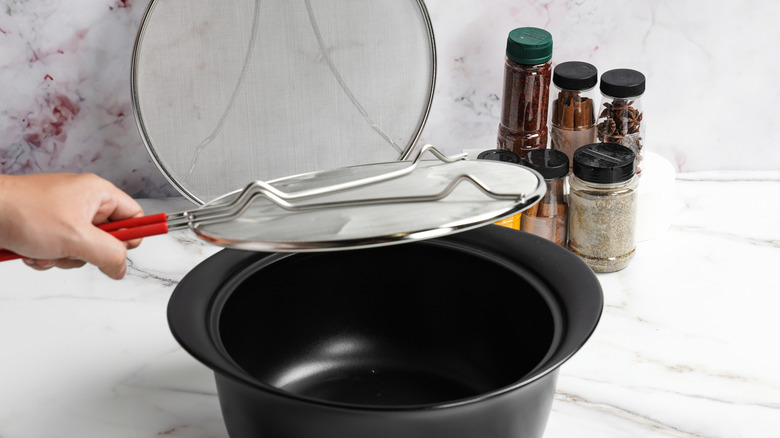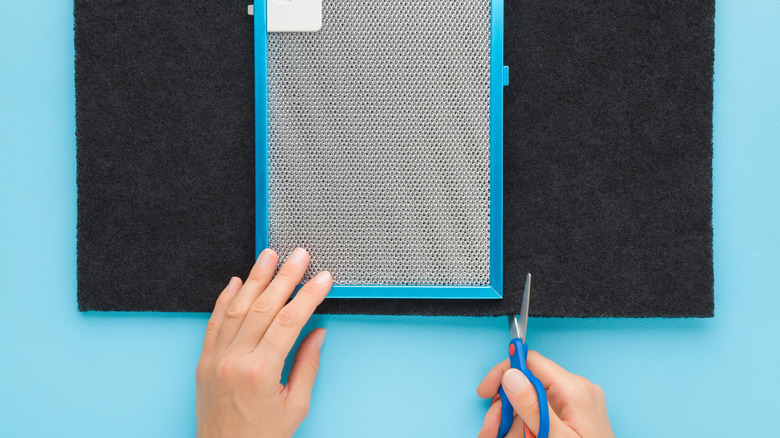Do Charcoal Filter Splatter Screens Actually Prevent Cooking Odors From Spreading? We Asked An Expert
If you've never experimented with a splatter screen, you're missing out on the freedom of not having to spend precious time and energy cleaning grease stains off the stove. But there's a way to take the fastidiousness up a level, and that's by using a splatter screen that also features a charcoal filter to eliminate odors. To learn more about whether this tool is worth the money and effort, Food Republic spoke with Ryan Knoll, cleaning expert and founder of Tidy Casa, a professional home cleaning service based in sunny Phoenix and Tucson, Arizona.
Knoll was effusive in his belief in charcoal's ability to be up for the task. "Charcoal is odor's worst enemy thanks to a process called adsorption," he said. Adsorption is a process that involves one material sticking to the surface of another (think of paint sticking to the surface it's applied to), compared to absorption, which involves one material transferring its particles into another (think of water going into a sponge). "Activated charcoal has an incredibly porous surface that traps odor molecules in its tiny nooks and crannies," he continued.
Knoll explained that's all that's needed to turn the splatter screen from a cheap kitchen tool that prevents hot food splatter into an incredibly effective odor-shield. "The screen allows steam and air to pass through while the charcoal layer snags odor molecules before they can escape into your kitchen. That's why charcoal home or car air filters work so well. It's all the same science."
How to best use a charcoal filter splatter screen
While a charcoal filter splatter screen will help avoid having to take apart your gas stovetop for cleaning quite so often while tamping down smells, it's not a magic bullet solution. According to Ryan Knoll, there are certain odors that it will be more effective at combating than others.
"Charcoal filters are champs at tackling organic odors, especially from sulfur and nitrogen-based compounds," he said. "That means things like fish, garlic, onions, and even smoky smells are their wheelhouse." Meats, eggs, dairy, legumes, and grains are all other food items particularly high in nitrogen — while cruciferous vegetables like broccoli, kale, and cauliflower are all high in sulfur.
But there are other items the filter might struggle with. "If you've got heavy grease or burnt sugar smells, charcoal might not be quite as effective," Knoll warned. "Those compounds tend to be heavier or [stickier] and don't move as easily through the filter." So before you go thinking you're home free, you might want to consider still cooking your bacon in the Instant Pot to cut down on splatter during breakfast.


